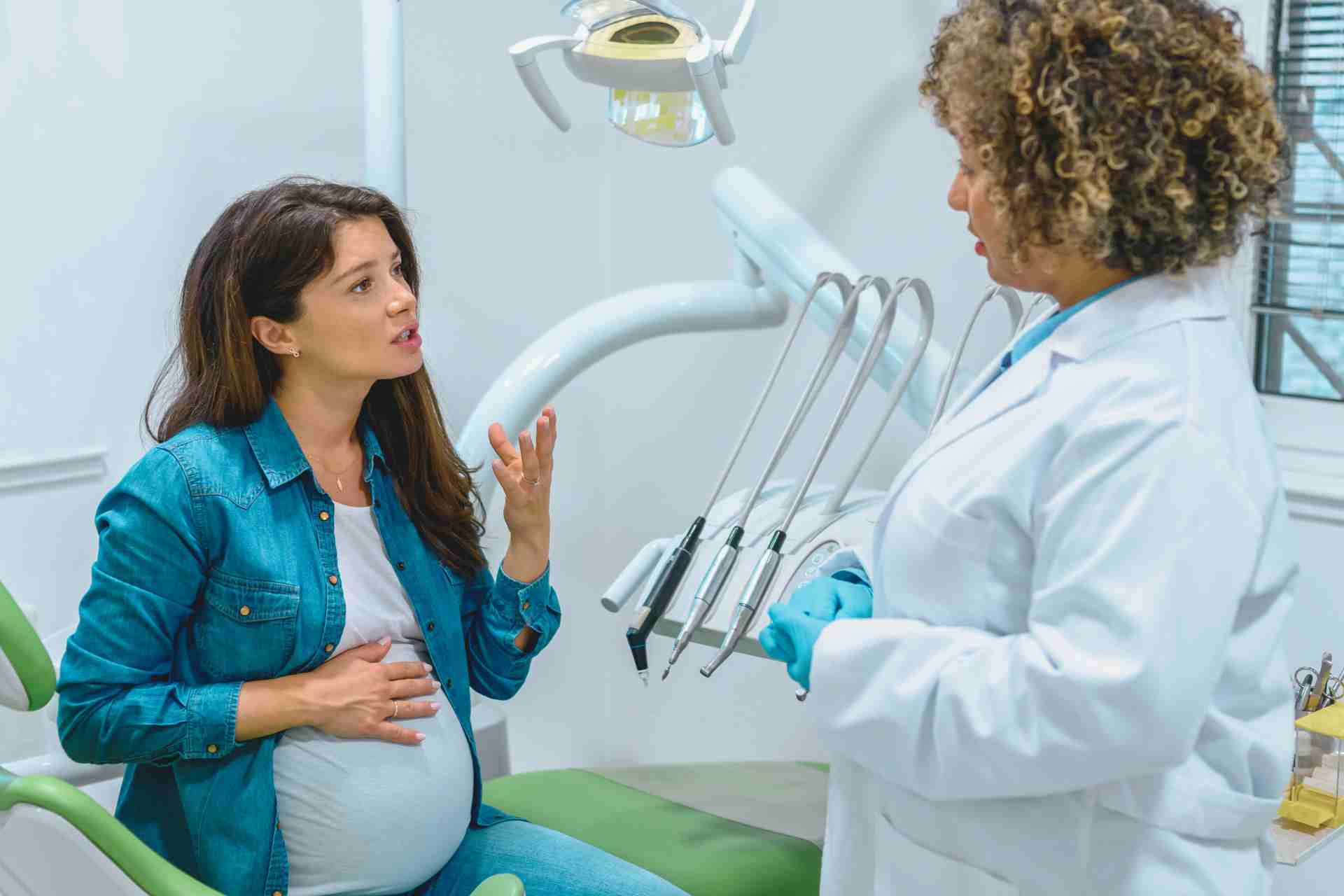Canker sores—those small but painful ulcers inside your mouth—can be an unexpected (and unwelcome) part of pregnancy.
They may pop up more often than usual thanks to the following:
- hormonal changes
- increased stress
- weakened immune system
The good news? While they can make eating and talking uncomfortable, canker sores won’t harm your baby. The even better news? There are safe, effective ways to treat them and even prevent future flare-ups.
Let’s see why they happen, what you can do for relief, and how to keep them from coming back.
Are Canker Sores Normal During Pregnancy?
Yes, canker sores are common during pregnancy due to hormonal changes, increased stress, and a weakened immune system. They are not contagious and usually heal within one to two weeks.
Safe treatments include:
- saltwater rinses
- honey
- baking soda paste
If a sore lasts more than two weeks or becomes infected, see a dentist.
What Are Canker Sores and Why Do They Happen When Pregnant?
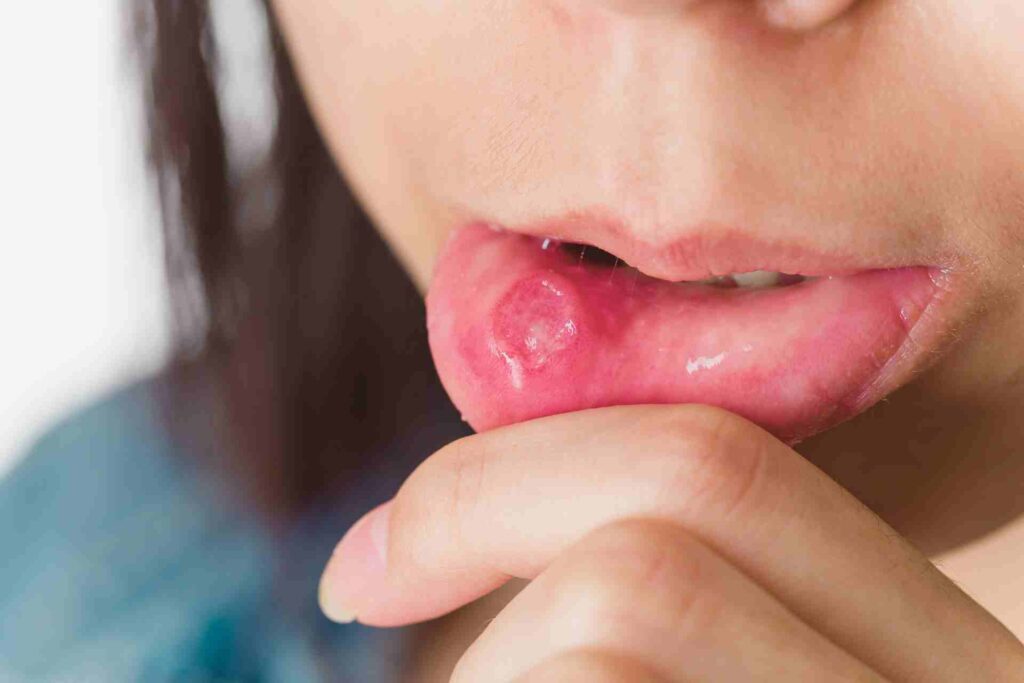
Canker sores are small, painful ulcers that develop inside the mouth—on the tongue, inner cheeks, or gums. Unlike cold sores, they aren’t contagious. But they can be frustrating, especially when they keep coming back.
Why Do Canker Sores Flare Up During Pregnancy?
Pregnancy brings a unique mix of hormonal, immune, and dietary changes that can make you more prone to canker sores. Here’s why:
Hormonal Fluctuations – Shifting estrogen and progesterone levels can make oral tissues more sensitive and prone to irritation.
Increased Stress & Fatigue – Your body is working overtime to grow a baby! This can weaken your immune system and slow down healing.
Diet Changes – Craving citrus, spicy, or salty foods? These acidic triggers can irritate sensitive mouth tissues and cause sores.
Weakened Immune System – Pregnancy naturally suppresses the immune system to protect the baby. This can make it harder for your body to fight off minor inflammation, like canker sores.
Can Nutrient Deficiencies and Oral Care Products Cause Canker Sores During Pregnancy?
Pregnancy demands more from your body. Certain deficiencies or irritants can make you more prone to canker sores.
Nutrient Deficiencies
Low levels of iron, folate, or vitamin B12 have been linked to frequent mouth sores. These nutrients play a role in cell repair and immune function. A deficiency can make it harder for your body to heal.
One mom reports, “I get crazy canker sores when I’m anemic for some reason. My dentist couldn’t find an explanation, but iron supplements keep them away.”
Oral Care Products
Sodium lauryl sulfate (SLS), a common foaming agent in toothpaste, has been known to trigger or worsen canker sores in some people. Switching to an SLS-free toothpaste may help reduce irritation.
View this post on Instagram
How Do Canker Sores Affect Eating and Talking During Pregnancy?
Canker sores may be small, but they can make everyday activities like eating and talking uncomfortable.
During pregnancy, your body is already adjusting to so many changes. Dealing with mouth pain is the last thing you want to deal with.
Eating can be painful – Spicy, salty, or crunchy foods can irritate the sore and make it worse.
Talking may feel uncomfortable – If the sore is on your tongue or inner lip, even normal conversation can rub against it and cause discomfort.
Tips to reduce discomfort:
- Stick to soft foods (Think yogurt, mashed potatoes, smoothies)
- Avoid acidic or spicy drinks
- Use a straw (and bypass sore areas)
Most canker sores heal within one to two weeks. Next, let’s look at the safest ways to treat them during pregnancy.
What’s the Safest Way to Treat Canker Sores During Pregnancy?
When dealing with canker sores during pregnancy, choose safe, gentle treatments that won’t harm you or your baby. Fortunately, several home remedies and pregnancy-safe options can help relieve pain and speed up healing.
Safe & Effective Home Remedies
- Saltwater rinse
- Honey or coconut oil
- Baking soda paste
Saltwater rinse is your best friend. Mix 1 teaspoon of salt with 1 cup of warm water, swish for 30 seconds, and spit. This helps reduce inflammation and promote healing.
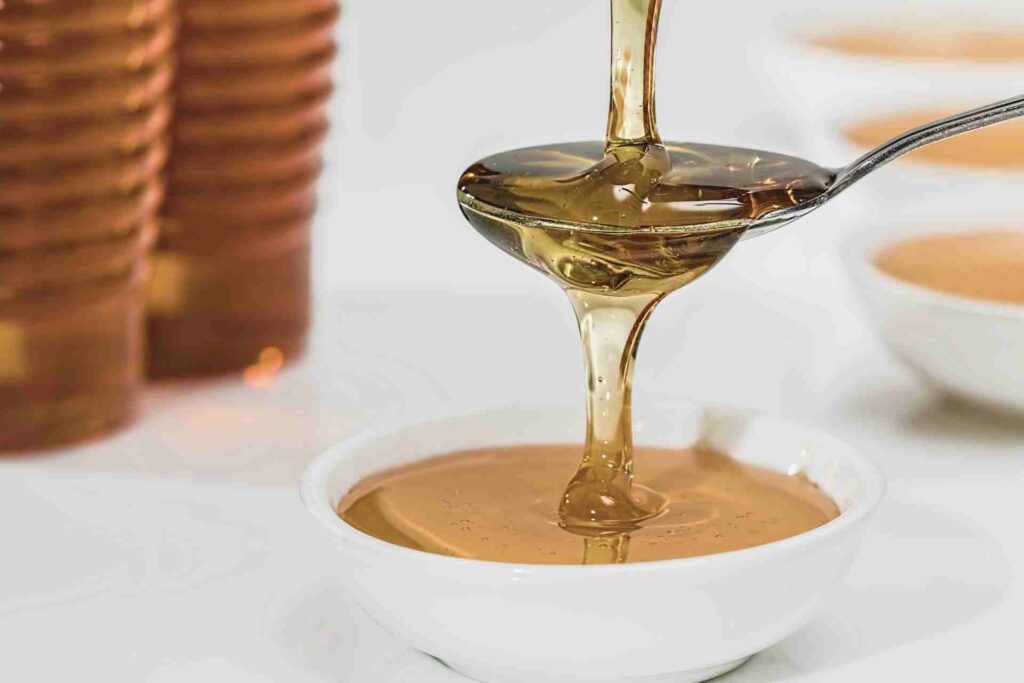
Honey or coconut oil has natural anti-inflammatory and antibacterial properties. Apply a small amount directly to the sore.
Mix baking soda with a few drops of water to create a paste. Apply it to the sore to neutralize acids and speed healing.
Pregnancy-Safe Medications (Check with your doctor first!)
Antiseptic mouthwashes, especially those containing chlorhexidine or aloe vera, can help reduce bacteria and soothe irritation.
Important: aloe vera has been associated with miscarriage when taken by mouth. Use it only as a mouthwash when cleared by your OBGYN.
Additionally, mild numbing gels can provide relief. Choose over-the-counter options that are safe and free from high alcohol content, as alcohol can cause stinging.
What to Avoid
- Alcohol-based mouthwashes as they can dry out and irritate the sore, making it worse.
- Stick to acetaminophen (Tylenol) if you need pain relief, as ibuprofen is not recommended during pregnancy.
How Can I Prevent Canker Sores While Pregnant?
Pregnancy already comes with enough discomfort—you don’t need canker sores making things worse. The best way to avoid them is to take care of your body inside and out, from nutrition to stress management to the products you use daily.
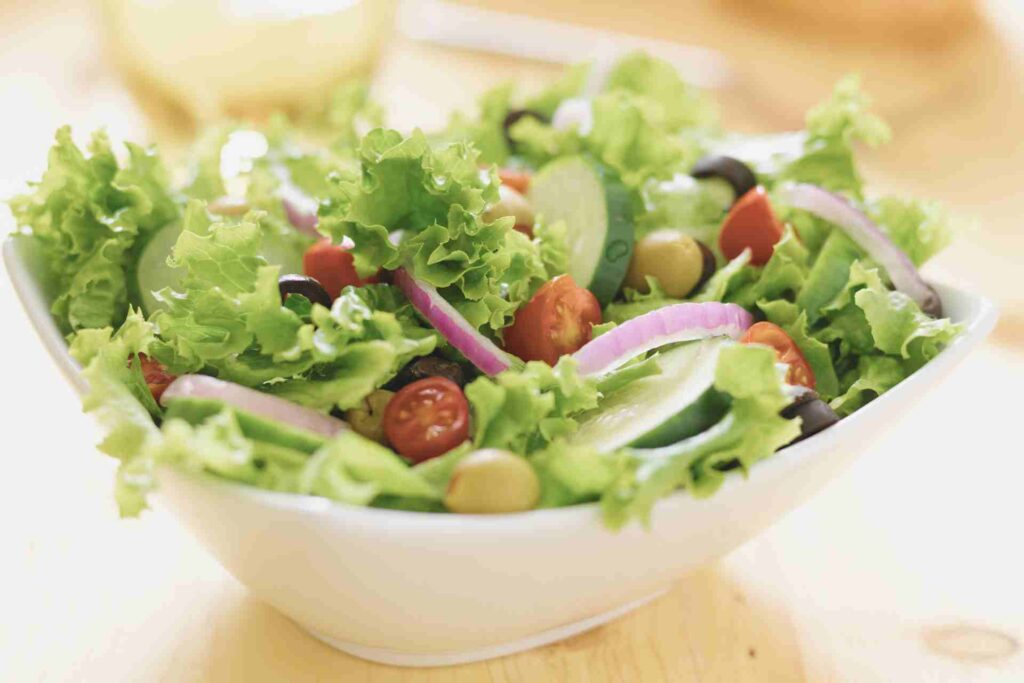
Start with what you eat. Iron, folate, and vitamin B12 are essential for healing and preventing mouth sores. So, focus on nutrient-dense foods like leafy greens, eggs, dairy, and lean meats.
If you’re experiencing frequent sores, it may be worth checking if you’re low on these key vitamins.
Next, manage your stress. Your immune system is already working hard during pregnancy. Stress can weaken it even more.
Try gentle ways to relax:
- prenatal yoga
- meditation
- deep breathing exercises
Prioritizing rest is just as important—getting enough sleep helps your body heal and fight off potential triggers.
Be mindful of your diet, too. If acidic, spicy, or salty foods tend to irritate your mouth, try cutting back. Pregnancy cravings can be intense, but if citrus or salsa always leaves you with a sore, it might be time to swap them for something milder.
Lastly, take a closer look at your oral care routine. Some toothpaste ingredients, especially sodium lauryl sulfate (SLS), can be too harsh and actually contribute to canker sores. Switching to an SLS-free toothpaste can make a huge difference.
Also, opt for a soft-bristled toothbrush to prevent irritation, especially if your gums are already sensitive during pregnancy.
Can Canker Sores Be a Sign of Another Health Issue?
Occasional canker sores are normal, but if they’re frequent, severe, or slow to heal, they could be a sign of something more.
The most common culprits include:
- Nutritional deficiencies
- Autoimmune conditions
- Oral infections
Iron, folate, or B12 deficiencies can make you more prone to sores. If you’re getting them often, a blood test may help identify any nutrient gaps.
Autoimmune conditions like celiac disease or lupus can cause recurring mouth ulcers as part of their symptoms.
Oral infections may be to blame if sores last longer than two weeks, get worse over time, or come with fever, swelling, or pus.
Check with your doctor or dentist to rule out underlying issues.
What Do Real Moms Say About Dealing With Canker Sores in Pregnancy?
“I got hit with them [canker sores] around 16 weeks. My mouth aches so bad. I have one along the side of my cheek like I bit my cheek but I didn’t. Darn it!” – @zombie_waffle
“Hell yes, and they suck. My best advice? Hit the pharmacy and buy a tube of Orabase-B paste…Not the gel. Rinse mouth with salt water, as hot as you can stand, then stick out tongue to allow to dry a bit and then apply the paste. It dumbs and helps heal. It’s a little tube of magic.” – @milfanie
“Aside from the typical early pregnancy symptoms, one of the first things that made me wonder if I was pregnant was the presence of painful aphthous stomatitis/canker sores all over my mouth and tongue. Early on I changed my toothpaste because I had read sodium lauryl sulfate increases instances of canker sores for a lot of people. I had never gotten them that bad before (maybe one or two in my entire life). Little did I know that it was actually the hormonal shift and low folic acid levels due to pregnancy. So that’s how I found out. […] They are driving me nuts. I am taking folic acid and trying to avoid acidic foods, and I also got a prescription mouthwash to help manage the pain so I can eat. The one thing I found worked really well was …dumping baking soda right on the sore and letting it “air dry” which turned it into a paste…” – @lost-generation
When Should I See a Dentist for Canker Sores During Pregnancy?
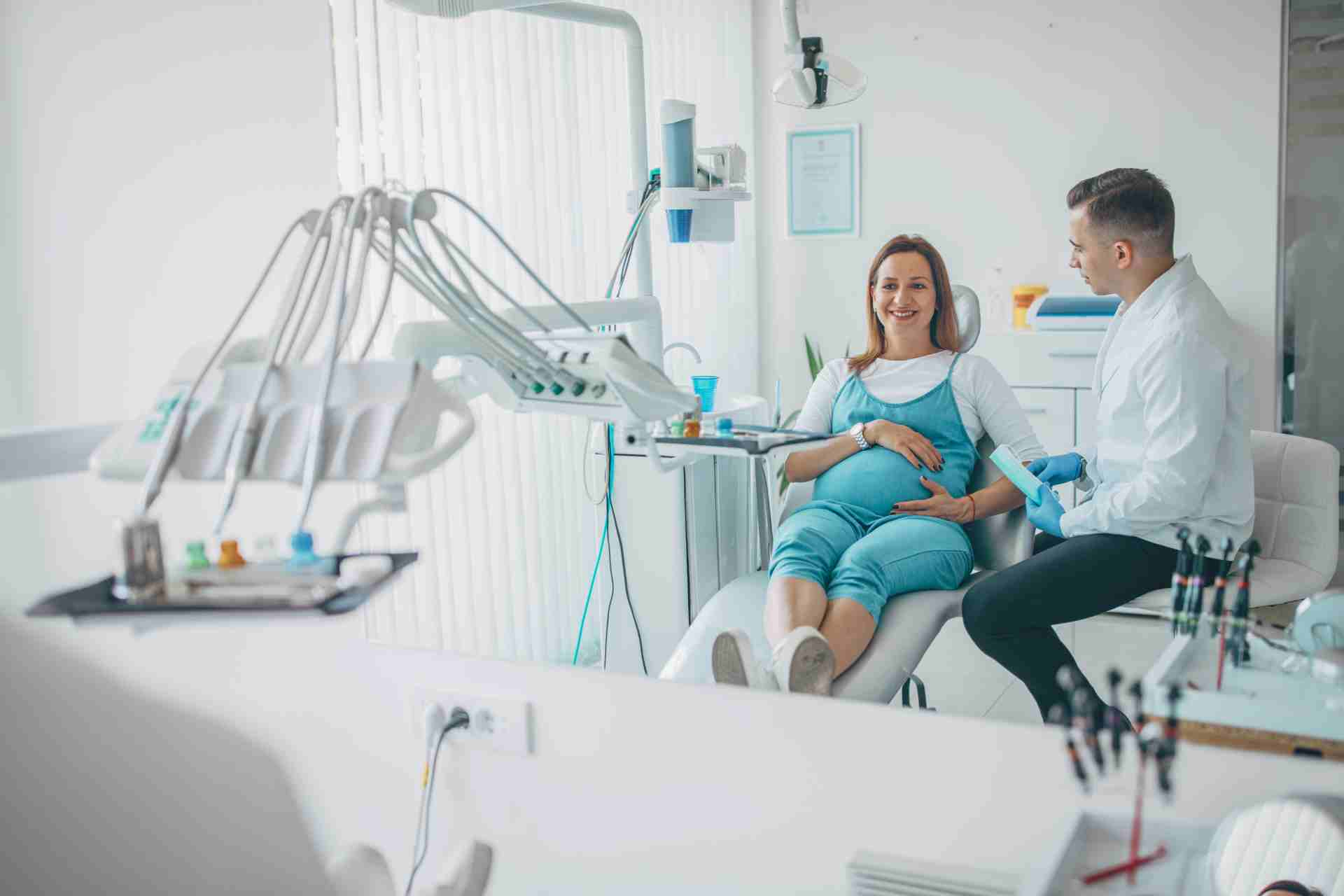
Most canker sores heal on their own. But sometimes, they need a professional’s attention. See your dentist if:
- A sore lasts longer than two weeks without improvement.
- Sores are large, extremely painful, or keep coming back.
- You notice signs of infection like fever, swelling, or pus.
If something feels off, it’s always best to get it checked. Your dentist can recommend safe treatments and help identify any underlying issues.
Key Takeaways
- Canker sores during pregnancy are common due to hormonal changes, stress, and diet shifts.
- They are not contagious and usually heal within 1-2 weeks.
- Safe treatments include saltwater rinses, honey, and baking soda paste.
- Prevent flare-ups by eating nutrient-rich foods, avoiding triggers, and managing stress.
- See a dentist if sores last more than two weeks or cause significant pain.
- For more pregnancy oral health tips, follow me on social media @joycethedentist!
FAQ
Can pregnancy hormones cause more canker sores?
Yes, hormonal changes can make your mouth more sensitive and prone to irritation.
Do canker sores mean I have a vitamin deficiency?
Not always, but frequent sores can be linked to low iron, folate, or B12 levels.
Can dehydration make canker sores worse?
Yes, a dry mouth can slow healing and increase irritation. Drink plenty of water.
Are canker sores contagious?
No, unlike cold sores, canker sores aren’t caused by a virus and can’t be spread.
Can I use hydrogen peroxide on a canker sore while pregnant?
No, it’s best to stick with saltwater rinses or baking soda paste for safer relief.
Do canker sores mean my immune system is weak?
Not necessarily, but pregnancy naturally lowers immune function, which can make healing slower.
Will switching toothpaste help prevent canker sores?
Yes, using an SLS-free toothpaste can reduce irritation and prevent flare-ups.
Should I worry if I get canker sores in every pregnancy?
Not usually, but if they’re severe or constant, check with your doctor for possible causes.




